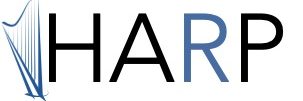What is HARP?
HARP is a doctoral training programme for health professionals, offering full time salary and consumables for three years. It is a partnership of QMUL and City supported by Social Action for Health and funded by the Wellcome Trust, Barts Charity, the Trustees of the Medical College of St Bartholomew’s Hospital, Barts Health NHS Trust and East London Foundation Trust.

Research projects must focus on underrepresented populations and diseases and can address mechanisms, phenotypes or therapies.
In addition to the PhD itself, HARP offers a one year Pre-Doctoral Training Phase for people with no previous formal research experience to gain exposure and to be more competitive when applying for PhDs. After the PhD, we offer a two year Post-Doctoral Support Phase which includes some salary support for research enrichment activities.
The HARP Pre-Doctoral Training Phase is for applicants without previous formal research experience. It provides up to 12-months’ full-time salary and research cost support for Health Professionals with 1-3 teams from the HARP supervisory cohort, to gain research experience and develop ideas and ambitions. They will have the opportunity to enrol for an MSc or equivalent course at QMUL or City. QMUL MSc courses can be found here, City can be found here. By the end of the pre-doctoral programme, applicants should develop appropriate research knowledge and skills to enable them to prepare a strong doctoral application. We offer support for writing applications and interview practice ahead of this pre-doctoral phase, and for the subsequent PhD application stage. This scheme sits outside the 3-year PhD, and selection to it does not guarantee a PhD fellowship place, but participants will be shortlisted for interview if they subsequently apply.

The optional Post-Doctoral Support Phase provides 0.2 FTE salary for up to one year after the PhD contingent on thesis submission, to be taken as a single block of time or weekly. This time, supported by QMUL, Barts Health & East London NHS Foundation Trust for a 1-year 0.2FTE, will be used to develop new ideas, travel to collaborators or similar enrichment activities, complete papers and be more competitive for further funding awards. Mentoring will continue for two years after completing the PhD.
